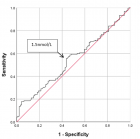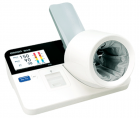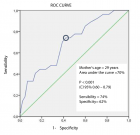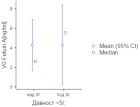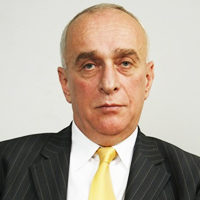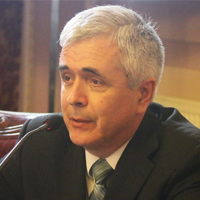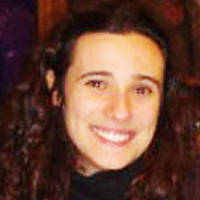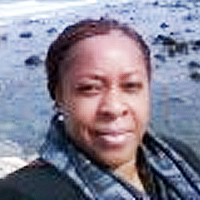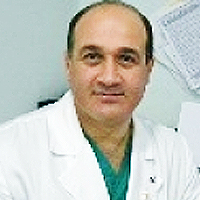Abstract
Research Article
In at the deep end: Psychosocial aspects of developing autonomy in histopathology training
AI Finall*
Published: 10 July, 2018 | Volume 2 - Issue 2 | Pages: 013-019
Medical postgraduate trainees are given increasing levels of responsibility during training in the apprenticeship-model of training [1-3]. Responsibility is said to be a key driver of deep learning and understanding [4-7]. Trainees with greater levels of responsibility for decision making have higher levels of motivation to learn compared with trainees who self-assess as having less autonomy [5]. The Royal College of Pathologists (RCPath) indicate that ‘graded responsibility’ is part of training histopathologists and provided a framework for implementation with increasingly complex specimens suitable for reporting by more senior trainees [8,9].
Read Full Article HTML DOI: 10.29328/journal.apcr.1001007 Cite this Article Read Full Article PDF
References
- Kennedy TJ, Regehr G, Baker GR, Lingard LA. Progressive independence in clinical training: a tradition worth defending? Acad Med. 2005; 80: S106- S111. Ref.: https://tinyurl.com/y9unbo6c
- Olle ten C. Trust, competence and the supervisors’ role in postgraduate training. BMJ. 2006; 333: 748-751. Ref.: https://tinyurl.com/y8udcwwk
- Williamson HA, Glenn JK, Spencer DC, Reid JC. The development of clinical independence: resident-attending physician interactions in an ambulatory care setting. J Fam Pract. 1988; 26: 60-64. Ref.: https://tinyurl.com/yd6yg7zm
- Boud D, Keogh R, Walker D. Reflection: turning experience into learning. London. 1985.
- Cantillon P, MacDermott M. Does responsibility drive learning? Lessons from intern rotations in general practice. Med Teach. 2008; 30: 254-259. Ref.: https://tinyurl.com/ybftmc4m
- Del Rio P, Alvarez A. Inside and outside the zone of proximal development: an Eco functional reading of Vygotsky. In: Daniels H, Cole M, Wertsch JV. The Cambridge Companion to Vygotsky. Cambridge: Cambridge University Press. 2007; 276-306.
- Vygotsky LS. Mind in society. The development of higher psychological processes. London: Harvard University Press. 1978.
- Joint Committee on Pathology Training. Curriculum for speciality training in histopathology. London: RCPath, 2010.
- Joint Committee on Pathology Training. A competency based framework for graded responsibility for specialist registrar and specialty registrars in histopathology and cytopathology. 2009.
- Ten Cate O, Chen HC, Hoff RG, Peters H, Bok H, et al. Curriculum development for the workplace using entrustable professional activities (EPAs): AMEE Guide No. 99. Med Teach. 2015; 37: 983-1002. Ref.: https://tinyurl.com/y6wybo72
- Sterkenburg A, Barach P, Kalkman C, Gielen M, ten Cate O. When do supervising physicians decide to entrust residents with unsupervised tasks? Acad Med. 2010; 85: 1408-1417. Ref.: https://tinyurl.com/yd9ooq8b
- Davey DD, Talkington S, Kannon V, Masood S, Davila R, et al. Cytopathology and the pathology resident: a survey of residency program directors. Arch Path Lab Med. 1996; 120: 101-114. Ref.: https://tinyurl.com/y7f23vru
- Allen TC. Graduated responsibility for pathology residents: no time for half measures. Arch Pathol Lab Med. 2013; 137: 457-461. Ref.: https://tinyurl.com/y94e6xd5
- Dijksterhuis MG, Voorhuis M, Teunissen PW, Schuwirth LW, ten Cate OT, et al. Assessment of competence and progressive independence in postgraduate clinical training. Med Educ. 2009; 43: 1156-1165. Ref.: https://tinyurl.com/ycklkozw
- Finall A, Allery L. Ready, Steady Go! What do histopathology trainees think they need from training to enable them to develop autonomy in surgical pathology reporting? J Clin Pathol. 2016; 69: 42-46. Ref.: https://tinyurl.com/yafztynj
- Pascal RR. Graded responsibility of residents in anatomic pathology: a survey and commentary. Am J Clin Pathol. 1993; 100: S41- S43. Ref.: https://tinyurl.com/y9nppv8q
- Davis P, Mann P, Cave A, McBennett S, Cook D. Use of focus groups to assess the educational needs of the primary care physician for the management of asthma. Med Educ. 2000; 34: 987-993. Ref.: https://tinyurl.com/yd6n24ap
- Randell R, Ruddle RA, Quirke P, Thomas RG, Treanor D. Working at the microscope. Analysis of the activities involved in diagnostic pathology. Histopathology. 2012; 60: 504-510. Ref.: https://tinyurl.com/ya3z3beo
- Cross V, Hicks C, Parle J, Field S. Perceptions of the learning environment in higher specialist training of doctors. Implications for recruitment and retention. Med Educ. 2006; 40: 121-128. Ref.: https://tinyurl.com/yb6r9jzp
- McKee M, Preist P, Ginzler M, Black N. Which tasks performed by pre-registration house officers out of hours are appropriate? Med Edu. 2012; 26: 51-57. Ref.: https://tinyurl.com/ybw8cmdh
- Halpern S, Detsky AS. Graded autonomy in Medical Education- Managing things that go bump in the night. N Eng J Med. 2014; 370: 1086-1089. Ref.: https://tinyurl.com/yasugqqb
- Babbott S. Commentary: Watching closely at a distance: Key tensions in supervising resident physicians. Acad Med. 2010; 85: 1399-1400. Ref.: https://tinyurl.com/y8bu9rff
- Evans, C. E. Nothing Becomes Real Until it is Experienced. RC Path Bulletin. 2004; 126: 18-20.
- Raab SS, Grzybicki DM, Janosky JE, Zarbo RJ, Meier FA, et al. Clinical Impact and Frequency of Anatomic Pathology Errors in Cancer Diagnoses. Cancer. 2005; 104: 2205-2230. Ref.: https://tinyurl.com/y9uopx8j
- Furness PN, Lauder I. A questionnaire-based survey of errors in diagnostic histopathology throughout the United Kingdom. J Clin Pathol. 1997; 50: 457-460. Ref.: https://tinyurl.com/y7n4tznb
- Graber M, Gordon R, Franklin N. Reducing diagnostic errors in medicine: What’s the goal? Acad Med. 2002; 77: 281-991. Ref.: https://tinyurl.com/ya2eg66t
- Davis DA, Mazmanian PE, Fordis M, Van Harrison R, Thorpe KE, et al. Accuracy of physician self-assessment compared with observed measures of competence: A systematic review. JAMA. 2006; 296: 1094-1102. Ref.: https://tinyurl.com/y7wjq5h9
- Lingard L, Garwood K, Schryer CF, Spafford MM. A certain art of uncertainty: case presentation and the development of professional identity. Soc Sci Med. 2003; 56: 603-616. Ref.: https://tinyurl.com/yc2nomt3
- Bush RW. Supervision in Medical Education: Logical Fallacies and Clear Choices. J Grad Med Educ. 2010; 2: 141-143. Ref.: https://tinyurl.com/y7cc7lbd
- Bailey DM, Gill MJ, Mutton K, Shine B. Future-proofing the specialty training curricula: Compliance with PMETB “Standards for Curricular and Assessment Systems”. RC Path Bullletin. 2010; 150: 106-110.
- Crommelinck M, Anseel F. Understanding and encouraging feedback-seeking behaviour: a literature review. Med Educ. 2013; 47: 232-241. Ref.: https://tinyurl.com/y93wma52
- Kennedy TJT, Regehr G, Baker GR, Lingard LA. Progressive independence in clinical training: A tradition worth defending? Acad Med. 2005; 80: S106-S111. Ref.: https://tinyurl.com/y9unbo6c
- Boud D. Creating the space for reflection at work. In Productive Reflection at Work. Boud D. Cressey P. Docherty P. (Eds) 2006. Abingdon, Oxon: Routledge.
- Davies S. Embracing reflective practice. Educ Prim Care. 2012; 23: 9-12. Ref.: https://tinyurl.com/ybateffl
- Moon J. Reflection in Learning and Professional Development. 1999 London: Kogan Page Ltd.
- Schon DA. The Reflective Practitioner: How professionals think in action. 1983 London: Temple Smith.
- Cantillon P, MacDermott M. Does responsibility drive learning? Lessons from intern rotations in general practice. Med Teach. 2008; 30: 254-259. Ref.: https://tinyurl.com/ybftmc4m
- Vermont JD, Verloop N. Congruence and friction between learning and teaching. Learn Instruct. 1999; 9: 257-280.
- Launer J. Supervision quartets. Postgrad Med J. 2012; 88: 185-186. Ref.: https://tinyurl.com/y89x8blq
- Cooper A. Supervision in primary care: Support or persecution? in: Burton J. and Launer J. (Eds) Supervision and Support in Primary Care. 2003 Oxon: Radcliffe Medical Press.
- Cooper N, Melville CR. Putting a curriculum into practice. In: Cooper, N and Forrest, K. (Eds) Essential guide to educational supervision in postgraduate medical education. 2009 Chichester: Blackwell Publishing.
- Li ST, Tancredi DJ, Scwartz A, Guillot AP, Burke AE, et al. Competent for Unsupervised Practice: Use of Pediatric Residency Training Milestones to Assess Readiness. Acad Med. 2017; 92: 385-393. Ref.: https://tinyurl.com/ybs46art
Similar Articles
-
Role of Carcinoma Associated Fibroblasts in Anoikis Resistance in Oral Squamous Cell Carcinoma –need of the hourAnjali Ganjre*. Role of Carcinoma Associated Fibroblasts in Anoikis Resistance in Oral Squamous Cell Carcinoma –need of the hour. . 2017 doi: 10.29328/journal.hjpcr.1001001; 1: 001-004
-
Hypernatremia and central Diabetes Insipidus following Neurosurgical procedure of TraumaAwad Magbri*,Eussera El-Magbri,Seth Hershit. Hypernatremia and central Diabetes Insipidus following Neurosurgical procedure of Trauma . . 2017 doi: 10.29328/journal.hjpcr.1001002; 1: 005-008
-
MicroRNA Therapeutics in Triple Negative Breast CancerSarmistha Mitra*. MicroRNA Therapeutics in Triple Negative Breast Cancer . . 2017 doi: 10.29328/journal.hjpcr.1001003; 1: 009-017
-
A great mimicker of Bone Secondaries: Brown Tumors, presenting with a Degenerative Lumber Disc like painZuhal Bayramoglu*,Ravza Yılmaz,Aysel Bayram. A great mimicker of Bone Secondaries: Brown Tumors, presenting with a Degenerative Lumber Disc like pain. . 2017 doi: 10.29328/journal.hjpcr.1001004; 1: 018-023
-
Predicament of classification: Multisystem small vessel vasculitis with cresentic GlomerulonephritisAwad Magbri*,Shaukat Rashid,Balhinder Brar . Predicament of classification: Multisystem small vessel vasculitis with cresentic Glomerulonephritis. . 2018 doi: 10.29328/journal.apcr.1001005; 2: 001-005
-
Pathological Effects of Cypermethrin on the Testes and Accessory Sexual Glands of Yankasa RamsUbah Simon*,Ogwu David,Rekwot Peter, Rwuaan Joseph,Chibuogwu Ijeoma, Njoku Celestine. Pathological Effects of Cypermethrin on the Testes and Accessory Sexual Glands of Yankasa Rams. . 2018 doi: 10.29328/journal.apcr.1001006; 2: 006-012
-
In at the deep end: Psychosocial aspects of developing autonomy in histopathology trainingAI Finall*. In at the deep end: Psychosocial aspects of developing autonomy in histopathology training. . 2018 doi: 10.29328/journal.apcr.1001007; 2: 013-019
-
Histological clonal change - A feature for dysplasia diagnosisLewei Zhang*,Tarinee Lubpairee,Denise M Laronde1, Martial Guillaud, Calum E MacAulay,Miriam P Rosin. Histological clonal change - A feature for dysplasia diagnosis. . 2018 doi: 10.29328/journal.apcr.1001008; 2: 020-028
-
Amyotropyc Lateral Sclerosis and Endogenous -Esogenous Toxicological Movens: New model to verify other Pharmacological StrategiesMauro Luisetto*,Behzad Nili-Ahmadabadi,Nilesh M Meghani,Ghulam Rasool Mashori,Ram Kumar Sahu,Kausar Rehman Khan, Ahmed Yesvi Rafa,Luca Cabianca,Gamal Abdul Hamid, Farhan Ahmad Khan. Amyotropyc Lateral Sclerosis and Endogenous -Esogenous Toxicological Movens: New model to verify other Pharmacological Strategies. . 2018 doi: 10.29328/journal.apcr.1001009; 2: 029-048
-
Receptor pharmacology and other relevant factors in lower urinary tract pathology under a functional and toxicological approach: Instrument to better manage antimicrobials therapyMauro Luisetto*,Naseer Almukhtar,Behzad Nili-Ahmadabadi,Ghulam Rasool Mashori,Kausar Rehman Khan,Ram Kumar Sahu,Farhan Ahmad Khan,Gamal Abdul Hamid,Luca Cabianca. Receptor pharmacology and other relevant factors in lower urinary tract pathology under a functional and toxicological approach: Instrument to better manage antimicrobials therapy . . 2018 doi: 10.29328/journal.apcr.1001010; 2: 049-093
Recently Viewed
-
Cystoid Macular Oedema Secondary to Bimatoprost in a Patient with Primary Open Angle GlaucomaKonstantinos Kyratzoglou*,Katie Morton. Cystoid Macular Oedema Secondary to Bimatoprost in a Patient with Primary Open Angle Glaucoma. Int J Clin Exp Ophthalmol. 2025: doi: 10.29328/journal.ijceo.1001059; 9: 001-003
-
Navigating Neurodegenerative Disorders: A Comprehensive Review of Current and Emerging Therapies for Neurodegenerative DisordersShashikant Kharat*, Sanjana Mali*, Gayatri Korade, Rakhi Gaykar. Navigating Neurodegenerative Disorders: A Comprehensive Review of Current and Emerging Therapies for Neurodegenerative Disorders. J Neurosci Neurol Disord. 2024: doi: 10.29328/journal.jnnd.1001095; 8: 033-046
-
Obesity in Patients with Chronic Obstructive Pulmonary Disease as a Separate Clinical PhenotypeDaria A Prokonich*, Tatiana V Saprina, Ekaterina B Bukreeva. Obesity in Patients with Chronic Obstructive Pulmonary Disease as a Separate Clinical Phenotype. J Pulmonol Respir Res. 2024: doi: 10.29328/journal.jprr.1001060; 8: 053-055
-
Current Practices for Severe Alpha-1 Antitrypsin Deficiency Associated COPD and EmphysemaMJ Nicholson*, M Seigo. Current Practices for Severe Alpha-1 Antitrypsin Deficiency Associated COPD and Emphysema. J Pulmonol Respir Res. 2024: doi: 10.29328/journal.jprr.1001058; 8: 044-047
-
Clinical and Histopathological Mismatch: A Case Report of Acral FibromyxomaMonica Mishra*,Kailas Mulsange,Gunvanti Rathod,Deepthi Konda. Clinical and Histopathological Mismatch: A Case Report of Acral Fibromyxoma. Arch Pathol Clin Res. 2025: doi: 10.29328/journal.apcr.1001045; 9: 005-007
Most Viewed
-
Evaluation of Biostimulants Based on Recovered Protein Hydrolysates from Animal By-products as Plant Growth EnhancersH Pérez-Aguilar*, M Lacruz-Asaro, F Arán-Ais. Evaluation of Biostimulants Based on Recovered Protein Hydrolysates from Animal By-products as Plant Growth Enhancers. J Plant Sci Phytopathol. 2023 doi: 10.29328/journal.jpsp.1001104; 7: 042-047
-
Sinonasal Myxoma Extending into the Orbit in a 4-Year Old: A Case PresentationJulian A Purrinos*, Ramzi Younis. Sinonasal Myxoma Extending into the Orbit in a 4-Year Old: A Case Presentation. Arch Case Rep. 2024 doi: 10.29328/journal.acr.1001099; 8: 075-077
-
Feasibility study of magnetic sensing for detecting single-neuron action potentialsDenis Tonini,Kai Wu,Renata Saha,Jian-Ping Wang*. Feasibility study of magnetic sensing for detecting single-neuron action potentials. Ann Biomed Sci Eng. 2022 doi: 10.29328/journal.abse.1001018; 6: 019-029
-
Pediatric Dysgerminoma: Unveiling a Rare Ovarian TumorFaten Limaiem*, Khalil Saffar, Ahmed Halouani. Pediatric Dysgerminoma: Unveiling a Rare Ovarian Tumor. Arch Case Rep. 2024 doi: 10.29328/journal.acr.1001087; 8: 010-013
-
Physical activity can change the physiological and psychological circumstances during COVID-19 pandemic: A narrative reviewKhashayar Maroufi*. Physical activity can change the physiological and psychological circumstances during COVID-19 pandemic: A narrative review. J Sports Med Ther. 2021 doi: 10.29328/journal.jsmt.1001051; 6: 001-007

HSPI: We're glad you're here. Please click "create a new Query" if you are a new visitor to our website and need further information from us.
If you are already a member of our network and need to keep track of any developments regarding a question you have already submitted, click "take me to my Query."






